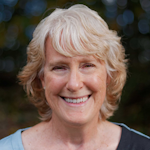Editor's note: 2023 foreword by author Kirsten Brancheau
I wrote this article in 2003, and when it was published I received several emails from young people asking for advice about becoming a hygienist. In reading what I wrote 20 years later, I realize that today’s young people who are considering a career in dental hygiene are born into a vastly different world than the one I lived in when I graduated from high school in 1973, and even the one I lived in when I first wrote this article. I thought a few explanations might be helpful.
First, computers were in their infancy in 1973. Nobody owned a personal computer. The internet did not exist. At the time I was considering becoming a hygienist, I could not google “What is a hygienist?” A person’s high school guidance department was the place to go to learn about various careers.
Furthermore, many dentists, including my own, did not employ hygienists. Widespread ignorance of the existence of the dental hygiene career was not unusual.
And last, although opportunities for women were increasing in the ’70s, many members of my parents’ generation were still of the mindset that most women should become teachers, secretaries, nurses, or homemakers. Those were safe and comfortable careers for women.
The question I dread hearing my patients ask is, "Why did you become a hygienist?" The reason I cringe when I'm asked this is that I don't have a nice, neat answer for it. A nice answer would be, "I became a hygienist because my father is a dentist and my mother and two older sisters are all hygienists." Or, "The hygienist who cleaned my teeth when I was a kid was such an inspiration and a role model to me." I would even like to be able to say that I became a hygienist out of a desire to help others. Those are all nice answers. Unfortunately, none of them are true for me.
The reason I became a hygienist is because I didn't need to take any math courses to become one. This is not an answer I can say with pride. It is, in fact, a little embarrassing. Fortunately, a mask usually covers my face when I say this, so, if I blush a little, no one notices. It is also an answer that requires elaboration. For the next few minutes of the hygiene appointment, the patient is hopefully concentrating on my words rather than on the sound of the ultrasonic scaler as I clean their teeth.
More by Kirsten Brancheau:
Musings of an older hygienist
Hygienists have the power! Or do we?
I had no idea what I wanted to do with my life when I graduated from high school. I took a minimum wage job to earn a little money while I tried to figure out in which direction I should head.
My parents tried to help. They asked me what I enjoyed doing. I told them I liked to read, and that I would like to find a job that would pay me to read. My parents asked me what else I liked to do, since reading for money did not seem like a real job to them. Well, I liked to write. This was not much better than reading, in their opinion. I suppose they sighed at that point, and went back to hoping and praying that their youngest child would eventually find a real job and become a responsible adult.
My minimum wage job was boring. I wanted something else; I just didn't know what that something else was. One evening I took a walk with my boyfriend and poured out my troubles to him.
"Why don't you become a dental hygEEnist?" he suggested.
"What's a dental hygEEnist?" I wanted to know.
"I don't know," he replied, "but that's not important. What's important is that they make lots of money and only have to go to school for two years."
Intrigued, I went back to my high school guidance counselor and asked him about becoming a dental hygEEnist.
"It's hygienist," he said, "and you will make a great one."
"But what exactly is a hygienist?" I still wondered. My counselor didn't know the answer either, but he gave me some county college catalogues to look through. Unfortunately, my county did not have a dental hygiene program, but three other counties within driving distance from my home did. I looked through the required courses for all three colleges. Not one program required math! It was settled. I was going to go to two years of college, become a hygienist (whatever that was), and be rich! All of this with no math! It sounded too good to be true.
I called all three colleges. The first two told me that I would not be accepted into their programs because I was out-of-county. The third told me that they reserve two openings for students from out-of-county. However, there were several students trying for those two spots and I would need to come in for an interview before being considered for the program.
Armed only with optimistic ignorance, I went to my interview. I was full of confidence. Despite my math phobia, I had good grades in high school and good SAT scores. I was sure to be picked for one of those two openings. I sat cheerfully down in the chair opposite a rather stern-looking interviewer. What was I expecting her to ask me, I now wonder? My hobbies? My vacation plans?
I was totally unprepared for her first question. "What does a dental hygienist do?"
What does a dental hygienist do? How could I possibly answer that? Nobody I had asked knew the answer. The two dentists I had been to as a patient did not have assistants, let alone hygienists. Dental hygienists make a lot of money for two years of college and no math. That's what dental hygienists do. Looking across the desk at the no-nonsense face of the interviewer, I knew I was doomed. But I had to say something.
"Uh ... she helps the dentist?"
Interview ended. Rejected.
My first reaction was total humiliation. How could I have been such a fool? As the humiliation slowly faded, it was replaced with determination. Not only was I going to become a hygienist, I was also going to find out what a hygienist is. The answer came sooner than I expected. As I shared my humiliating experience with a woman at my church, I found out that she was a dental assistant who wanted to become a hygienist, too.
Both my friend and I were from the same county—the one with no dental hygiene program. We both wanted one of the two openings for out-of-county students. Both of our interviews (my second) went well, and, amazingly, we were both accepted into the dental hygiene program.
The next two years were not easy. I went from someone who had never even heard of floss to a fanatical flosser of my own teeth and the teeth of every patient who sat in my chair. Even without the math, the courses were difficult. But graduation day finally came, the boards came, and finally the license came. I made it! I was actually a dental hygienist!
It is almost 25 years since I got that license, and I have been practicing ever since. Although I never realized that long-ago dream of becoming rich, my life has been incredibly enriched through dental hygiene. I have met many wonderful people, accumulated lots of stories to tell my kids, have earned a good salary, and have brightened the smiles of hundreds of patients.
Although my reasons for becoming a hygienist now seem silly to me, my reasons for remaining a hygienist all these years are anything but silly. Dental hygiene has been a blessing to me.
In the 20 years since I wrote this article, I have questioned the last sentence many times. My career has not always felt like a blessing. In fact, there was a period of eight months when I quit it altogether and worked for minimum wage at a cat shelter. I loved working with the cats, but financial realities brought me reluctantly back to dental hygiene.
Through those struggles I’ve learned a lot about myself and can again state that overall my career has been a blessing to me.
Life is funny. Little did I realize when my mother dismissed my love of reading and writing as an impractical career choice, that one day I actually would get paid to read and write. For more than 20 years I’ve enjoyed a second career as a freelance proofreader, editor, and writer. I guess you could say I’ve been doubly blessed.
Originally posted in 2003 and regularly updated







